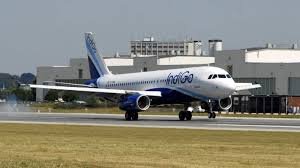The recent declaration of international passenger data for the first quarter of CY2024 by the Directorate General of Civil Aviation (DGCA) has revealed intriguing insights into the performance of Indian carriers. While IndiGo maintained its position as the leading carrier for international traffic to and from India, there was a notable decline of 2.9% in its market share compared to the previous quarter. In contrast, Air India experienced a corresponding increase of 2.9% during the same period, marking a significant shift in the competitive landscape.
IndiGo, renowned for its dominance in the domestic market, has been actively expanding its international operations in recent years. However, the grounding of certain aircraft and other operational challenges may have contributed to the slight decrease in its international passenger share during the first quarter of CY2024. Despite this setback, IndiGo remains a formidable player in the international aviation sector, leveraging its extensive route network and operational efficiency to maintain a strong presence.
Conversely, Air India’s gain in international traffic share highlights the resilience and strategic initiatives undertaken by the national carrier. With a renewed focus on enhancing customer experience and route optimization, Air India has successfully capitalized on emerging opportunities in the international market. The airline’s ability to adapt to changing dynamics and capitalize on its strengths has enabled it to capture a larger share of the market, consolidating its position as a key player in the Indian aviation industry.
While IndiGo and Air India represent contrasting narratives in the international aviation landscape, other players, including the Tata group, have also made notable strides in Q1 CY2024. The Tata group, which recently acquired Air India, has emerged as one of the biggest beneficiaries, capitalizing on the synergies and strategic advantages afforded by the acquisition. With a diversified portfolio spanning various sectors, including aviation, the Tata group is well-positioned to capitalize on the evolving dynamics of the international aviation market, further enhancing its market presence and competitiveness.
As the aviation industry continues to navigate through challenges and opportunities, the latest data underscores the importance of adaptability, strategic planning, and customer-centric approaches in sustaining growth and competitiveness. With dynamic shifts in market dynamics and competitive landscapes, airlines must remain agile and innovative to seize opportunities and mitigate risks effectively, ensuring sustained growth and resilience in the ever-evolving aviation ecosystem.

